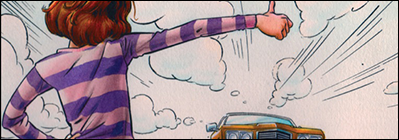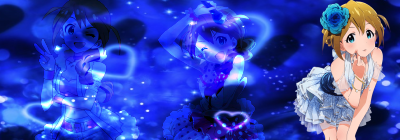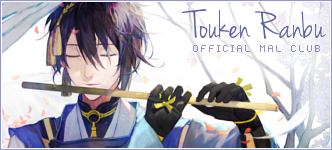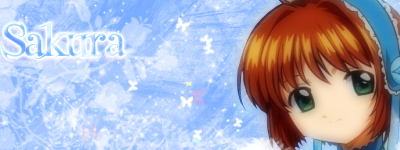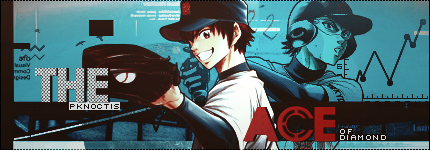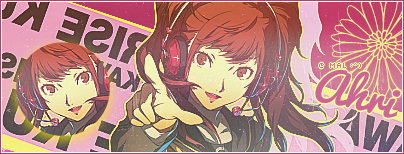The "analysis" below makes a lot of assumptions (especially the part about the older sister) but I thought it was entertaining
Copy and pasted from here:
http://mistresssith.deviantart.com/journal/The-Truth-Behind-Boku-no-Pico-316386128
BOKU NO PICO (A.K.A) MY FINAL SUMMER
This is the first of the trilogy in which a young adult named Tsutomu encounters a beautiful young girl swimming in the town he has come to visit one summer.
The thing is, that was no girl. That was a little boy—a ten-year-old little boy, at that.
Tsutomu (Later nicknamed 'Mokkun' by the titular Pico) comes to realize that while being a pedophile is perfectly legal in Japan, being a homosexual is not. After getting to know the shy grandson of the elderly restaurant owner, he dresses little Pico in drag and bangs him anyway over the course of this short summer.
Sounds like a perfectly normal, morally skewed loli/shota story, right?
WRONG.
What is not explained on-screen is WHY Pico is working for his grandfather, forced to wear a womens apron and serve older men at ten years old. Perhaps there is more to that unsettling feeling you have after viewing 'Pico' than the pornography itself.
This man, as you may have guessed, is not Picos real grandfather. He is a carrier of a particularly deadly form of AIDS, which he contracted from a young male prostitute on a trip to Tokyo last year.
When he found out that he had the disease, 'grandfather' kidnapped the neighbors child he had long fantasized over to service him in a vacation town for the remaining summers he had left.
Pico, an innocent victim of sexual abuse, was now a carrier as well. Yet all he wanted nothing more than to return to his family, to have a friend to play with and become a child again. Unfortunately, befriending Mokkun would prove to be identical to the ways 'grandfather' and his customers 'played' with him.
The tragedy behind this film lies in Pico desperately clinging to his illusion of friendship—Mokkun was different. He didn't hurt him, at least, physically hurt him. Pico knew that his 'grandfather' cursed the prostitute that infected him every day, and took it out on him. He didn't want to do that to his only friend in the world.
This is the reason behind Pico's flight near the end—When he knowingly asked Mokkun if he loved him or not, he pretended to get mad and ran off. This way, he could avoid Mokkun without ever revealing what he may have done.
He planned on cutting his hair (a symbol of grieving) and killing himself in the ocean. What Pico did not plan on was Mokkun finding him, and rescuing him from his despair.
Pico told him everything, and Mokkun listened. Though he was horrified, Mokkun appears to be sympathetic. After this, Pico truly falls in love with the older man, and they consummate their 'love' on the beach. Mokkun promises to return when summer comes again.
A year passes, and the last flowery words Pico heard him speak still ring in his mind:
"Goodbye, my Pico."
"See you next time" was the boy's unanswered reply.
Whether Mokkun truly harbored any feelings whatsoever toward Pico is debatable. Whether or not he actually contracted the disease, he never returned the following summer.
PICO x CHICO (A.K.A) CHILDHOOD'S END
Pico, already homeless after 'grandfather's' death, found himself alone in the world after his friend never returned for him. He wandered the countryside, earning pocket money by selling his body to anyone who would spare him a room for the night.
One day, he came across the home of a boy about his age, and his older sister. He recognized the woman as one of the prostitutes from near his grandfathers house, but played along with Chico, unable to tell the younger boy the truth behind his sisters nightly escapades.
The two became close, and Pico remembered how nice it was to have a friend. In a desperate, childish attempt to regain what he had lost, he taught Chico about the world of pleasure and had sex with him over and over.
Chico, who was already lonely from his parents deaths and the pain of his sister slowly succumbing to her mental illness, imprinted on Pico instantly.
One day, while sister was out with a client, Chico showed off her wardrobe to Pico, and they started to fool around innocently in her clothes. When she came home, she had been beaten and battered by her previous client. She cowered in the hallway crying, until she was calmed by the pleasured sounds of her younger brother having sex with Pico. She was comforted by the sight, and masturbated to it repeatedly.
Chico's sister vanished the next day and never returned. Instead of revealing to his young friend the truth behind his sisters long trips to town, Pico invited Chico to run away with him to the city he had once lived in with his parents.
This broken, salvaged family torn apart by pedophilia and human trafficking began a new life.
The finale to the trilogy is the most beautifully symbolic of the entire series. Most people are confused by the sudden appearance of a new child, and Coco's overall significance to the story as a whole. I hope that this may shed a little light on the otherwise casual viewer.
PICO x CHICO x COCO (A.K.A) OUR HEAVEN
This final installment to the series starts out with a tragic reality: sometime in between this film and the previous one, Chico and Pico had met their untimely deaths alone in the sprawling city of Tokyo.
We see the first scene is Pico with a strange, faylike child. A little bit of trivia: the appearance of Coco is based on the appearance of the child who knowingly infected Pico's grandfather figure with a sexually transmitted disease as a final revenge against the men who used him all of his life. (In the original draft for the first OVA, he was supposed to be in the movie's first scene with the ice cubes, and the grandfather character in Mokkun's place—the studio was unable to find a way to incorporate the story within the time constraints and theme of the series as a whole.)
However, Coco is not an actual character at all. He is a massive illusion of the two children's dreams and desires (And, some argue, the ghost of the boy described above)—a beautiful new friend who helps them survive in the hellish city that claimed their lives.
Coco has an underground palace (a metaphor for the afterlife) full of everything the dead children had dreamed of—a safe, fun place to play and dress up and live their lives as children.
Some speculate that Pico and Chico died in the underground train passages.
Coco, the fairy (actually, the 'angel' of their dreams) comforted each of the suffering boys as they dealt with their loneliness and despair. However, Pico became envious of Chico favoring this 'fairy' over reality, and they did away with their fantasy friend.
Now alone in the world and terrified of the death that was closing in on their fading reality, they desperately searched for Coco throughout their consciousness. Tokyo Tower, a place from Pico's long-lost school day memories, was where they ended up—the tower that lead them to heaven.
The orgy of happiness and togetherness the boys drowned themselves in eased the fears they had of death. All that mattered was that they were together, like the groups of things Coco kept collected in their fantasy.
The consummation of their acceptance of reality lit up the city that had consumed them. The power outages which were the doubts they had about their lives were done away with, as they came towards the light.
The angel they had dreamed up together, Coco, lead them to heaven… all they had to do was (literally) dive in. (Thus the metaphor of the diving board and swimming pool. A frightening leap, though a necessary one in the cycle of life. They could keep going back down the ladder, but they would never experience the afterlife without making the choice to leap.)
In the final scene, we see Pico sitting on the gate to heaven, smiling at the viewer. "See you next time," he says, reassuring us that we all will meet again one day.
Perhaps these words aren't quite as futile now as they were before. |
